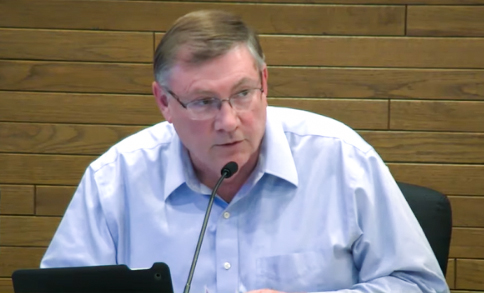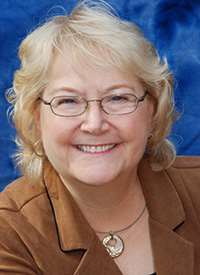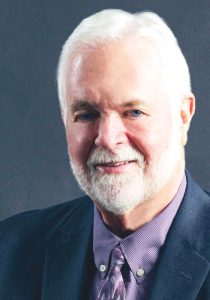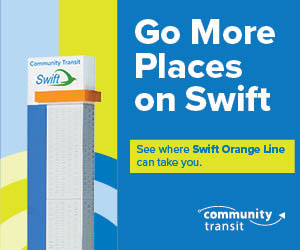With the majority of Lynnwood residents voting to remove the annual vehicle fee, Council President George Hurst presented an ordinance to do so. However, the debate around the ordinance’s pros and cons tumbles on as councilmembers gear up to vote on the matter in the upcoming Business Meeting.
October 18 Regular Work Session
During the Lynnwood City Council’s October 18 regular Work Session, council members debated the pros and cons of an ordinance that would remove the $40 car-tab fee residents must pay annually. The ordinance was a hot topic of debate during the October 11 Business Meeting. After discussing its merits during this week’s Work Session, the ordinance will be revisited and voted upon during the upcoming Business Meeting on Monday, October 25.
Public Works Director’s Presentation
Before discussing the topic amongst themselves, the council heard a presentation from the City of Lynnwood’s Public Works Director, Bill Franz. Franz began by explaining how the $40 tab fees “generate one-third of the [Transporation Benefit District] revenue” before reiterating the importance of transportation in the community — a sentiment Franz says has been repeatedly acknowledged by the council before.
“We’ve heard from our citizens many times in surveys that transportation ranks at the very top of their list for concerns,” Franz said.
According to Franz, for 25 years in Lynnwood now, the budget has repeatedly been through a belt-tightening cycle. “Every time it’s the same flavor — there’s a lot of pressure to provide the services that we provide, and there’s never quite enough revenue to do that,” he said. Franz then observed that, since transportation is not in the general fund, that it is an easy “go-to” for potential budget trimming.
Franz also explained how this problem isn’t unique to Lynnwood; around the mid-2000s, several cities in Washington were experiencing the same struggle to fund transportation adequately. The result of those struggles was the creation of the Transporation Benefit District (TBD), “so that’s what many cities throughout the state have taken advantage of, including Lynnwood,” he said.
Franz continued, explaining that through the TBD, the city has been able to meet pressing budget needs while also preserving funds for transportation.
“So that’s why I have some deep concerns when I think of this idea of eliminating one-third of our funds through this ordinance, via the tab fees, and this thought of supplanting that with general funds,” he said. “‘Cause I’ve lived that cycle over and over, and I really fear that ultimately, that’s going to be very hard to do and likely that we won’t have the success in doing that that we think we might.”
According to Franz, there are only a few choices where the city could make cuts. “Do we cut funds there for things like filling potholes, and trimming vegetation and paint striping, and keeping our signs nice and bright and safe? Or do we do less each year of our paving programs? You know, or overlay programs that we do? Or do we do less, even, of the sidewalk work?” he asked. “These are going to be very tough decisions to make on where to make those cuts.”
Franz concluded his presentation by stating that the $2 million biennium from vehicle fees can do a lot for the community, including paving roads, maintaining traffic signals, and paving wheelchair ramps. “There’s a lot of good work that could be done,” he said.
Council President George Hurst’s Initial Comments
Before noting that out of the 110 cities in Washington that have TBDs, only 6 of them assess both sales tax and a vehicle fee, Hurst said, “There will be time to make roads a real budget priority, and it can be a priority without relying on vehicle fees.”

Hurst presented two recent events that have brought to his mind why the city needs to reconsider these vehicle fees. “One, that we did have a balanced budget without using these fees during the last budget cycle. Those fees were set aside,” he said.
“And also, we have to [acknowledge] the fact that there was a vote on I-976 by the public, asked state-wide and also the city of Lynnwood — 54.6% of voters voted for that initiative.
“The majority of residents in Lynnwood don’t like the vehicle tab fees,” he concluded.
That fact ushered in Hurst’s next point; that residents don’t believe the council listens to them.
Citing a survey from a couple of years ago, Hurst said that 42% of Lynnwood residents “thought we welcomed citizen involvement,” that 45% said “they had confidence in the city’s government,” and that 47% thought that “we were acting in the best interest of Lynnwood residents.”
“In other words, the majority of people that answered this survey had no confidence in the City Council and what we do,” Hurst continued. “And I think that it’s a reflection that, a lot of times, we just tend to say, ‘we’re going to do what we think is best, and we’re not listening to the voters.’” He then stated that the I-976 vote is a prime example of how the council needs to listen to the residents.
Hurst spoke about budgeting for outcomes and prioritizing roads and transportation, saying, “It’s tough, but there are alternatives.” He then reiterated how this ordinance won’t remove the $40 fees until 2023, which will give the city council time to budget for outcomes.
Hurst concluded by succinctly summarizing his case, which is two-fold — first, that the council needs to respect and respond to the voice of residents, and second, that the council needs to budget for outcomes.
Councilwoman Frizzell proposes a different process

Councilwoman Christine Frizzell retraced the history of the tab fees and noted that in July of 2016, the council voted to add a second tab fee of $20, making the $40 total fee currently in effect. “There are members of this council, including our President Hurst, who voted to increase tab fees by 20 dollars,” she said.
“That happened in July of 2016, and then in November 2016, the TBD submitted a ballot to voters asking them about increasing sales tax by 1%,” she continued. “And low and behold, the voters said yes. They said 56% to 44% that ‘yes, we should increase that sales tax fee.’”
“So now, I think that, as Council President mentioned, that we have a lot of opportunity to use our BFO (Budgeting for Outcomes) program and look at things holistically, as to where to cut expenses, and I agree. I don’t think roads and sidewalks should be cut,” she concluded. “We got a lot of roads still in disrepair.”
Frizzell suggested that this issue be pushed back so that it is “kicked into the budget season” and that maybe the finance committee needs to look at it before a decision is made.
She specifically objected to doing away with the vehicle fees through an ordinance, “especially for something that is possibly a year or more down the road,” she said. “I think that we resolve this through the process that we have, which is BFO, and through our budgeting process, not through an ordinance.”
Councilwoman Julieta Altamirano-Crosby’s question about ARPA funds
Councilwoman Julieta Altamirano-Crosby inquired whether or not the funds from the American Rescue Plan Act (ARPA) could be used for transportation. While the short answer was yes, Councilwoman Shannon Sessions would later explain how the ARPA funds are temporary and that roads and transportation require consistent funding.
Council Vice President Jim Smith and priorities

According to Council Vice President Jim Smith, Lynnwood’s roads have not been prioritized, but new taxes have.
Smith explained the $40 annual fee affects residents, especially those in lower-income brackets. “Now, most of us on the council can afford the $40 tab fee,” he said, “but there’s also a lot of people in the community that are on the lower financial spectrum. Those are the ones who hurt the most, and those are the ones that would benefit from this.”
He revisited the argument of “it’s not that much money to them” whether it’s utility tax or car tax, “and I would disagree,” Smith said. “They need it more than we do. This council needs to be looking at what we can do to help people — help the people that live here in Lynnwood as opposed to what we can do to help ourselves get more money for various projects. And again, it’s a matter of prioritizing.”
Councilwoman Shannon Sessions’ Rebuttal

Councilwoman Shannon Sessions began by questioning an earlier claim made regarding Lynnwood being one of six cities with both a sales tax and a vehicle fee, asking, “the other five cities, what other taxes do they have besides the sales tax? ‘Cause you just said they don’t have the car tab fee, that doesn’t mean they don’t have something else in addition to the sales tax,” directing her question at Hurst.
Sessions then addressed the amount of money itself. “What we’re having a discussion about this evening is $40 a year. A year,” she said. After speaking of her own experience, having had years where she was “very-very broke,” she said, “$40 a year — I’m sorry — is not very much money.” She suggested that removing that annual fee would not help Lynnwood residents as much as some council members claim.
“I hate that we keep saying that,” she continued. “I think it’s kind of insulting to say that these families in need really — I mean, they need more than $40 a year. They need more than that.” She went on to explain how, with the ARPA funds, “we can do more than $40 a year for these families that we’re referring to right now. And that will do them more good than us stopping $40 a year.”
She also spoke about how street and sidewalk maintenance is vital for lower-income individuals and those who are disabled so that they can safely walk to where they need to go. She also reminded the council that funding ADA compliance projects is “mandated” and that they don’t have the option not to fund them. “We don’t get to choose that; we have to pay that, so we have to take money from somewhere for that.”
She concluded by stating that she is not in favor of getting rid of the $40 fee and would instead use the ARPA funds to help the community directly.
Council President Hurst Responds
Council President Hurst responded by clarifying the point he had made early about the cities that both have sales tax and TBD fees. “There are 110 cities in Washington that have a TBD, and by law, the TBD’s can either go with councilmanic vehicle fees or they can present to voters a sales tax. Those are the two things they can do,” he explained.
“Those are the only two things they can do. And of those 110 cities, there are only six that have both the sales tax and the vehicle fees, and we are one of those six of 110.”
Regarding his 2016 vote to increase the vehicle fees by $20, Hurst defended his vote by explaining how he indicated when he voted that he would advocate for removing the vehicle fee if the sales tax increase were to pass.
“And that’s what I’ve done, ever since that sales tax passed,” he said.
Addressing the argument that $40 a year isn’t that much, Hurst explained that for businesses that have multiple vehicles, that $40 increases. But, ultimately, he circled back to Lynnwood voting on I-976 to remove the vehicle fee and reiterated how residents are “tired of elected officials who don’t respond to them.”
Councilwoman Christine Frizzell’s case against the ordinance
Frizzell followed Hurst’s response by saying, “I don’t think we need an ordinance to make streets a priority. Streets will be a priority, and through the budget season next year, we’ll figure this stuff out.” Concluding that she does not think removing the $40 fee is “a responsible choice.”
Michelle Meyer, the City of Lynnwood’s Financial Director, supported Frizzell’s notion, explaining that it would be prudent to wait until the council has a better understanding of the future budget before deciding whether or not to cut the $40 car-tab fee.
According to Council President Jim Smith, the council will revisit the ordinance at the next Lynnwood City Council Business Meeting this Monday night on October 25.
Lynnwood City Council Meetings
As was stated previously, the ordinance to remove the $40 annual vehicle fees will be revisited and voted on during next week’s City Council’s Business Meeting on Monday, October 25. Click here to see past and upcoming city council meetings.









3 Responses